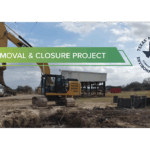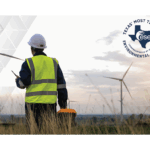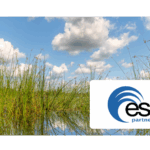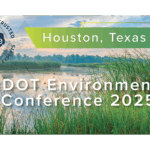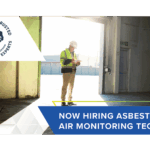
Environmental compliance is an important aspect of contemporary business operations. Ensuring that organizations meet regulatory requirements and environmental standards is crucial for sustainable development and safeguarding the environment. In Arlington, environmental compliance auditing plays a critical role in assessing and maintaining compliance levels.
Understanding Environmental Compliance
Environmental compliance refers to the adherence to environmental laws, regulations, and standards that are established by governing bodies to protect the environment. It encompasses a wide range of aspects, including waste management, air and water quality, greenhouse gas emissions, and biodiversity conservation.
Organizations that prioritize environmental compliance often go beyond mere legal requirements and strive to implement proactive measures to minimize their ecological footprint. This can include investing in renewable energy sources, implementing recycling programs, and conducting regular environmental impact assessments to identify areas for improvement.
Definition of Environmental Compliance
Environmental compliance is the process of ensuring that organizations operate within the legal framework and meet specific environmental requirements. It involves the monitoring and management of activities that have environmental impacts, which might include pollution prevention, resource usage efficiency, and sustainable practices.
Furthermore, environmental compliance extends beyond just regulatory obligations; it reflects a commitment to environmental stewardship and corporate sustainability. Companies that embrace environmental compliance as a core value often integrate environmental considerations into their business strategies, decision-making processes, and overall corporate culture.
Importance of Environmental Compliance
Complying with environmental regulations is crucial for several reasons. Firstly, it helps maintain a healthy environment by preventing pollution and reducing the negative impacts of human activities on ecosystems. Secondly, it ensures the long-term sustainability of natural resources and supports biodiversity conservation. Additionally, environmental compliance promotes social responsibility and enhances an organization’s reputation.
By demonstrating a strong commitment to environmental compliance, organizations not only fulfill their legal obligations but also contribute to broader sustainability goals and help address pressing environmental challenges such as climate change, deforestation, and habitat destruction. Embracing environmental compliance can lead to cost savings through improved resource efficiency, reduced regulatory fines, and enhanced relationships with stakeholders who prioritize environmental responsibility.
The Role of Auditing in Environmental Compliance
Environmental auditing plays a vital role in evaluating an organization’s environmental performance, identifying compliance gaps, and recommending corrective measures. It serves as a proactive approach to assess and improve environmental management systems.
Organizations across industries are increasingly recognizing the importance of environmental auditing in ensuring sustainability and meeting regulatory standards. By conducting regular audits, companies can not only demonstrate their commitment to environmental responsibility but also identify opportunities for cost savings and operational efficiency.
Purpose of Environmental Audits
The primary purpose of environmental audits is to determine if an organization is meeting legal requirements and following best practices. Audits provide an objective assessment of an organization’s environmental performance, identifying areas of non-compliance, potential risks, and opportunities for improvement.
Moreover, environmental audits help organizations build trust with stakeholders, including customers, investors, and regulatory bodies. By showcasing a commitment to transparency and accountability through auditing processes, companies can enhance their reputation and credibility in the market.
Types of Environmental Audits
There are various types of environmental audits conducted to assess compliance levels. These include compliance audits, which focus on legal requirements; performance audits, which assess an organization’s overall environmental performance; and management system audits, which evaluate the effectiveness of environmental management systems.
Each type of environmental audit serves a specific purpose in evaluating different aspects of an organization’s environmental practices. While compliance audits ensure adherence to regulations, performance audits delve deeper into the efficiency and impact of environmental initiatives. Management system audits, on the other hand, focus on the structure and processes in place to manage environmental responsibilities effectively.
Arlington’s Approach to Environmental Compliance Auditing
Arlington takes a proactive approach to environmental compliance auditing, ensuring adherence to regulations and continuous improvement of environmental practices. By prioritizing environmental responsibility, Arlington aims to not only meet legal requirements but also exceed them to minimize the company’s ecological footprint and contribute positively to the environment.
One of the key aspects of Arlington’s approach is the integration of sustainability principles into every level of the organization. This involves not only complying with existing regulations but also actively seeking ways to enhance environmental performance and promote a culture of environmental awareness among employees.
Arlington’s Environmental Policies
Arlington has established comprehensive environmental policies that outline the company’s commitment to environmental stewardship. These policies integrate legal requirements, industry standards, and voluntary initiatives to promote sustainability throughout operations. By setting clear guidelines and objectives, Arlington ensures that environmental considerations are embedded in decision-making processes across all departments.
Moreover, Arlington’s environmental policies are regularly reviewed and updated to reflect the latest developments in environmental science and regulatory requirements. This commitment to continuous improvement demonstrates Arlington’s dedication to staying at the forefront of environmental best practices and adapting to the evolving landscape of environmental compliance.
Auditing Process in Arlington
Arlington follows a systematic auditing process to assess compliance and drive environmental improvements. This process involves planning and scoping the audit, conducting on-site inspections, collecting data and evidence, analyzing findings, making recommendations, and monitoring implementation. By following a structured approach, Arlington ensures that environmental audits are thorough, objective, and effective in identifying areas for enhancement.
Furthermore, Arlington places a strong emphasis on transparency and accountability in its auditing process. The company actively engages with stakeholders, including regulatory bodies, environmental organizations, and local communities, to gather feedback and insights that can inform audit priorities and actions. This collaborative approach not only enhances the credibility of Arlington’s environmental compliance efforts but also fosters trust and cooperation with external partners in advancing shared environmental goals.
Challenges in Environmental Compliance Auditing
Environmental compliance auditing is not without its challenges. Constantly evolving regulations, complex compliance requirements, and emerging environmental issues pose unique challenges for organizations.
Common Compliance Issues
Organizations often struggle with issues such as improper waste management, inadequate pollution control measures, insufficient employee training, and inadequate documentation of environmental practices. These challenges can make it difficult to ensure full compliance.
Overcoming Auditing Challenges
To overcome these challenges, organizations must invest in continuous education and training for employees, implement robust environmental management systems, and stay updated on evolving regulations. Embracing technological innovations and seeking external expertise can also help address complex compliance issues effectively.
Future of Environmental Compliance Auditing in Arlington
Arlington recognizes the importance of staying ahead of emerging trends and continuously improving its environmental compliance practices.
Emerging Trends in Environmental Auditing
The field of environmental auditing is evolving rapidly. Technological advancements, such as remote sensing, data analytics, and automation, are simplifying auditing processes and enhancing accuracy. Additionally, the integration of sustainability reporting and environmental, social, and governance (ESG) considerations is becoming increasingly important for organizations.
Arlington’s Plans for Future Compliance
Arlington is committed to adopting emerging trends in environmental auditing to enhance its compliance practices. The company plans to explore advanced auditing tools and techniques that leverage technology to enhance data collection and analysis capabilities. By integrating sustainability practices into its operations, Arlington aims to achieve higher levels of environmental performance.
In conclusion, environmental compliance auditing is a critical component of Arlington’s commitment to sustainability. By implementing robust auditing processes, addressing compliance challenges, and embracing emerging trends, Arlington strives to be at the forefront of environmental compliance in the region. Through its proactive approach, Arlington sets an example for other organizations, emphasizing the importance of environmental stewardship and compliance in achieving a sustainable future.
If you’re inspired by Arlington’s commitment to environmental compliance and sustainability, and you’re seeking to enhance your own organization’s environmental performance, ESE Partners is here to guide you through the complexities of environmental challenges. As a leader in environmental consulting, we’re dedicated to responsibly moving business forward with innovative and sustainable solutions. Whether you need assessment, remediation, or compliance services, our team of experts is equipped to deliver honest, quality-driven results that recognize opportunities and improve community quality of life. Don’t wait to take the next step towards environmental excellence. Request A Proposal! today and partner with us to ensure your business is at the forefront of environmental stewardship.


